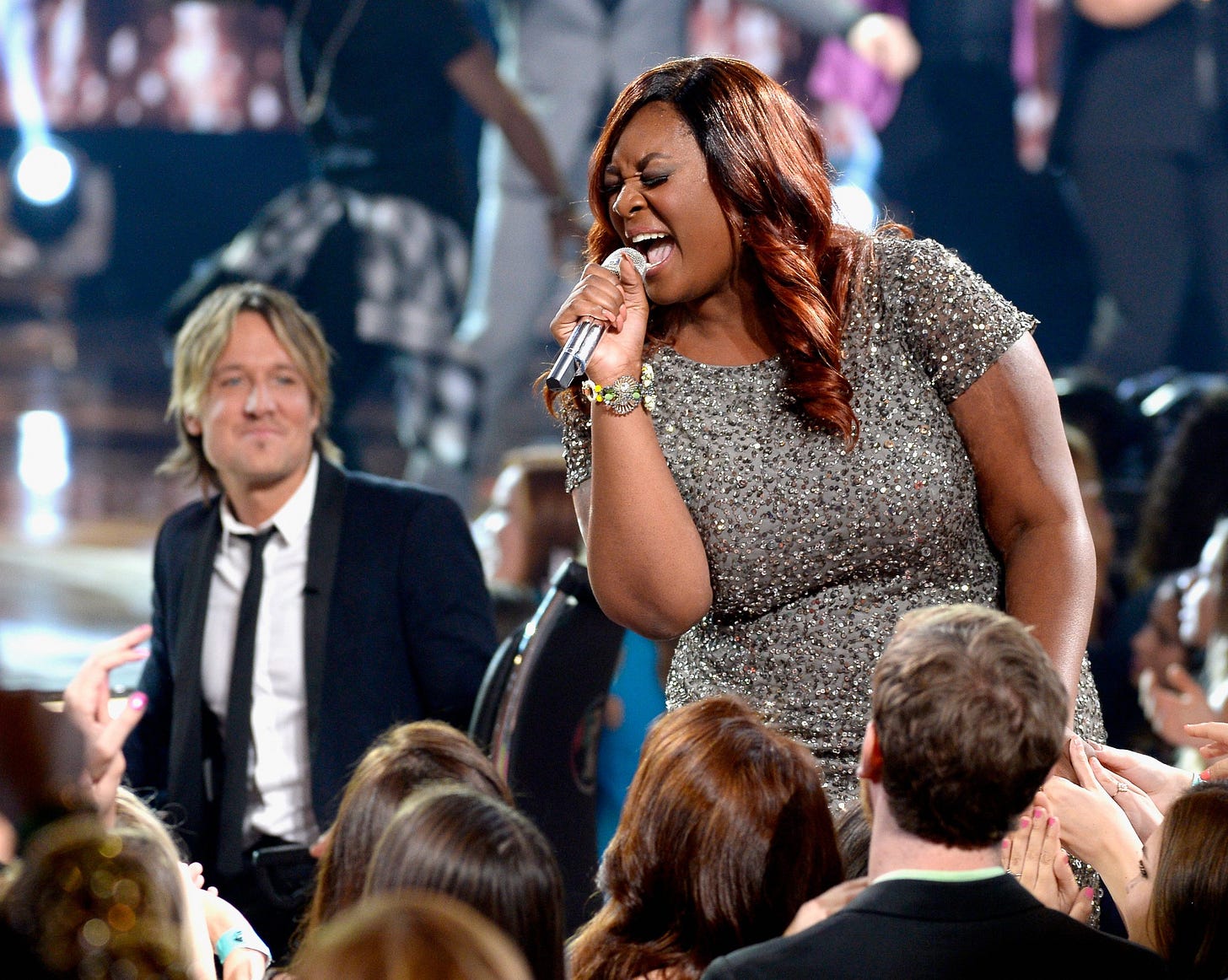Candice Glover and the Unpredictable Aftermath of Idol
The Idol Siren Who Mastered the Stage, but Lost the Label War. What the Industry's Hype Machine Costs R&B Artists on Their Rise.
In the glittering, high-stakes arena of reality singing competitions, a true artist can’t just perform—they have to soar. And in 2013, on the twelfth season of American Idol, that artist was Candice Glover. Hailing from St. Helena Island, South Carolina, Glover was not an overnight sensation; her victory was the culmination of three auditions, a testament to her undeniable, powerful, R&B-infused vocal talent.
She was the moment. Her rendition of “I Am Beautiful” on the finale was a declaration, a pitch-perfect affirmation of her talent. But her story, like many post-Idol careers, became a cautionary tale about the gap between winning the war on television and conquering the music industry.
Glover’s debut album, “Music Speaks,” was historic—it was put on pre-order the night she won, a first for the series, a move clearly designed to capitalize on the Idol buzz. Yet, the momentum stalled. The highly anticipated album, featuring collaborations with heavy hitters like Jazmine Sullivan (who co-wrote her single “Cried”) and Mike WiLL Made-It, was repeatedly delayed, initially set for July 16, 2013, then pushed back to February 18, 2014.
“When the album actually did come out, it didn’t sell as many as it would’ve if it had stayed on pre-order from the night I had won,” Glover candidly noted later.
The delay, coupled with the difficulty of scratching off that “American Idol winner” sticker, complicated her transition from a contestant singing covers to an authentic recording artist. As one journalist noted, R&B artists from the show, including Ruben Studdard and Fantasia Barrino, have struggled with “unmemorable post-idol albums,” though a fan counter-argued that they are still great singers respected in the R&B community.
Despite the commercial hurdles, critics recognized the talent at the core of “Music Speaks.” AP Music Writer Mesfin Fekadu called the album “one of the better ‘Idol’ debuts,” noting that Glover is a “vocal powerhouse” and that the album “demonstrates promise as she shows she’s more than a balladeer.” He also highlighted that she “stole the show on ‘Idol’ when she adopted her voice to a wide-range of songs” and that the album continues that promise. Another voice lauded the album, saying “’Music Speaks’ is a fantastic debut that is astoundingly exquisite in design, offering a homage to all eras of soul and, most importantly, Candice’s prime talents.”
Ultimately, Glover moved on, later choosing to release music independently and focusing on a mix of travel for international fans, and a career in music coordination/directing and coaching at SCAD, alongside occasional performances with fellow Idol alumni like Ruben Studdard.
The post-show narrative of American Idol‘s R&B winners—such as Ruben Studdard (S2), Fantasia Barrino (S3), Jordin Sparks (S6), and Candice Glover (S12)—is complex. While these artists are undeniably talented, one analysis suggests that Country music winners like Carrie Underwood consistently outperform R&B winners on the charts, citing a difference in popularity and “nicheness” between the genres.
Is being an R&B winner a positive factor? The initial buzz is massive, but post-show success is less guaranteed for R&B/Soul winners than for Country or Pop artists on Idol. The perception that some R&B/Soul winners have released “unmemorable” albums, as one critic put it, suggests the show’s machine struggled to transition R&B talent into chart-topping commercial artists as effectively as it did with others. The total number of R&B winners is four, which, compared to the overall number of winners, indicates a lower frequency of success for the genre’s artists compared to their Pop and Country counterparts.
The career impact of Idol has evolved. In the early days, it was the only launchpad; now, it’s a springboard. To pivot and maximize exposure, future competition show artists must embrace a new model.
The Old Idol Paradigm (2000s) focused on winning the record deal with the show’s label (19/Interscope), where exposure was limited to TV screen time and a major label push, and creative control was often limited to singing covers. Success was measured in millions of album sales and Billboard Hot 100 hits.
The New Talent Show Strategy (2020s+) requires a focus on building a personal, engaged fanbase and a viable brand independent of the show’s label. Exposure maximization means leveraging social media, live streaming, and Idol buzz to drive traffic to self-managed platforms (YouTube, TikTok, Bandcamp). Artists must push original music and authentic artistry from the start, as Glover learned by embracing her own “odd” ideas, and the success metric is a sustainable independent career, touring, brand partnerships, and diversification into acting/coaching/producing.
Candice Glover’s story teaches that the post-show window is fleeting. Modern contestants must treat the show as a seven-month marketing campaign, not a career plan. By actively engaging on social media, immediately releasing original, high-quality material (without label delays), and defining their unique artistic lane during the show, they can secure a legacy that outlasts the final confetti drop.



